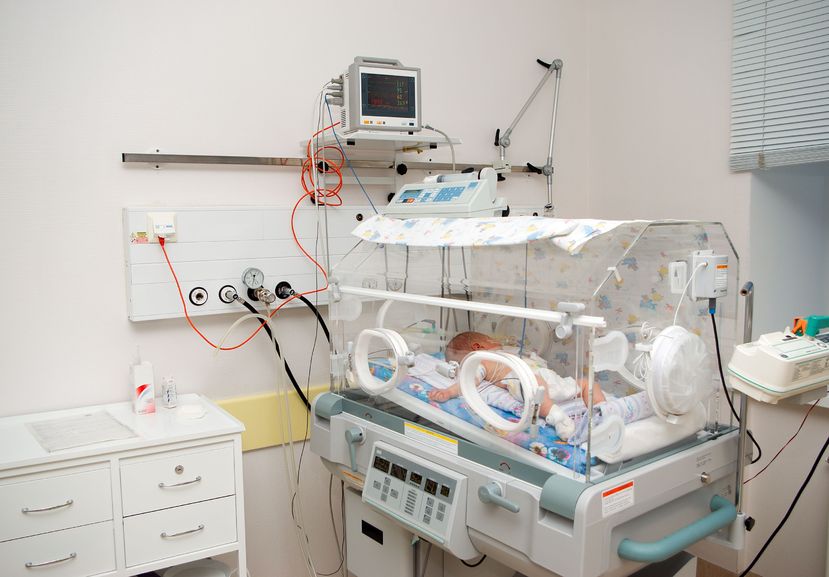Almost every hospital in the UK has a neonatal care unit for babies born needing specialised care due to some sort of illness or health condition. One in nine babies spends at least some time in a neonatal unit. Where premature babies are concerned, they will all receive neonatal care to one extent or another. How much care is required depends on how early a baby is born and what the child’s physical health is at the time of birth. In this post, you will find the neonatal babies care unit explained in detail.

The word ‘neonatal’ means ‘newborn’. This indicates that the neonatal unit at your local hospital specialises in caring for newborns. But understand that not every neonatal unit in the UK is the same. There are three levels of neonatal care that can vary from one facility to the next. Those three levels of care are used to designate hospital units as follows:
Where a premature baby is admitted for treatment really depends on the child’s health at birth. Prior to 27 weeks of gestation, it is quite likely that a baby will be stabilised in a local SCBU unit before being transferred to a NICU, either on-site or at another facility.
Being frightened by first impressions of the neonatal intensive care unit is not at all abnormal. Parents may walk in and instantly be taken back by all of the medical equipment being used to keep their baby going. But parents should do their best to rest assured in the knowledge that a neonatal intensive care unit is the best place for a critically ill child in need of life-saving treatment.
Some of the equipment parents might see being used include:
Parents should never be afraid to ask questions about any equipment being used. Knowing what is happening with your baby can go a long way toward easing your mind and mitigating your fears. Whatever you do as a parent, do not assume the worst because you see so many devices being used to keep your baby going.
Should your baby be admitted to a neonatal care unit, there are certain things you can expect as a matter of course. First and foremost, babies in the neonatal unit are prone to infection. You will, therefore, be required to wash your hands whenever entering the unit; you might also be required to wear special clothing.
NICUs usually allow 24-hour access to sick babies for parents and other immediate family members. That generally means parents can remain by their babies’ sides even through the night. Some hospitals might even offer overnight accommodations if they have the room. If not, there may be local charities that offer parents free or reduced-cost accommodations.
Lastly, almost every neonatal unit includes a separate parents room with a television, internet access, and other amenities. Parents should never feel ashamed to use this room when they need a physical or emotional break. Let’s face it, sitting at the bedside of a critical newborn 24/7 is physically and emotionally challenging. It’s okay to take a break every now and again. Furthermore, there may be times when nurses ask parents to leave for a few minutes so that they can do what needs to be done. This is a good time to head to the parents’ room for a short break.
The neonatal babies care unit at your local hospital is designed to provide the necessary care should your baby be born sick or prematurely. They have the specialised equipment and experience to provide the best possible care for your baby. Should you find yourself needing one, rest assured your baby would be in very good hands.